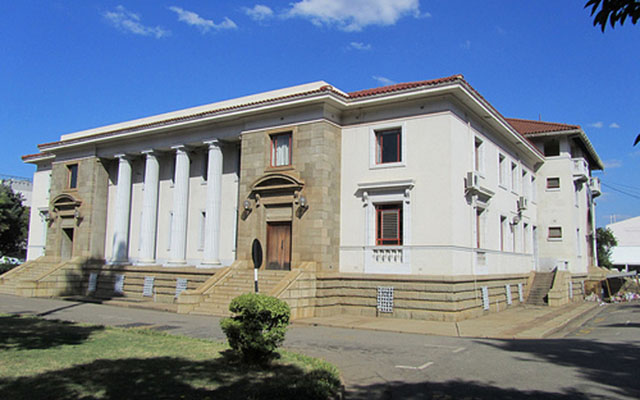Harare City Council finally comes to the party!

Victoria Ruzvidzo In Focus
Harare City Council has finally come to its senses. It has crafted an investment policy with potential to change the face of the city and restore its sunshine city status that had been taken over by darkness only equalled to a total eclipse of the sun, as it tethers and dithers in its efforts to offer services to its populace.
The city, with at least 1,5 million people owing to increased rural to urban migration in the past few decades, is heavy laden with challenges that have seen it fail to provide the most basic of services such as refuse collection or provision of adequate clean water. Some parts of Harare have gone for decades without a drop of water from the city.
Not much is firing in Harare presently; the roads, the traffic lights, basic services such as refuse collection, pavements have been taken over by vendors, who have invaded the Central Business District in their hundreds while dilapidated buildings, long condemned as dangerous, still remain standing and are carrying hundreds of people doing small legal and illegal businesses.
On the road, the Mushika-shika cars continue to dangerously wiggle their way from Rotten Row to Fourth Street with little admonition, while commuter omnibuses have taken over lanes on such big roads as Julius Nyerere and Robert Mugabe Way congesting traffic and causing accidents. Very little has been done to clean up this mess.
Most times I feel very sorry for the city’s spokesperson Michael Chideme, who has to speak his voice hoarse to explain the status quo to an audience that is fully aware of its rights and disinterested in some of the excuses proffered. Part of the crowd has lived in Harare when everything was functional and they actually know what they are talking about when they demand that certain standards be met.
Living in Harare has become a nightmare and we are glad the city fathers have awoken from a deep slumber and now realise the need for a sound policy that addresses all these challenges and many more.
Indeed Harare is the capital city and that in itself says a lot. It is the first point of contact for visitors and investors and the truism that appearance is everything carries considerable weight. Harare’s economic welfare has a telling effect for the rest of the country.
Globally, the socio-economic performance of the capital cities has a large bearing on a country’s overall economic performance. A research of 2 000 cities done by the Mckinsey Global Institute showed that world capitals have become more influential in the national economies’ matrix. “The world is in the throes of a sweeping population shift from the countryside to the city. The global urban population is growing by 65 million annually, equivalent to adding seven new Chicagos a year.
And for the first time in history, more than half of the world’s population is now living in towns and cities. Underpinning this transformation are the economies of scale that make concentrated urban centres more productive.
This productivity improvement from urbanisation has already delivered substantial economic growth and helped radically reduce poverty in countries such as China. The expansion of cities has the potential for further growth and poverty reduction across many emerging markets. Urbanisation will be one of this century’s biggest drivers of global economic growth,” said the report.
By 2025 at least 600 cities will contribute $64 trillion to the global economy, accounting for 60 percent of total GDP. At least 136 emerging cities will enter the top 600 in that year.
MGI research reveals that at least two-thirds of a company’s growth momentum is attributed to its location. Therefore, the city must get down to business and implement its investment policy to attract investment. It is quite plausible it has taken the first step by coming up with an investment policy largely aimed at creating an enabling business environment, making the city not only habitable but also attractive to both local and foreign investment.
It is an indictment on the powers that be at Town House that the situation was allowed to descend into such a desperate and deplorable state. However, current efforts, as evidenced by the new investment policy, should transform the situation if applied diligently.
This policy coalesces with the national investment plan and should help the country at large, become more attractive to investors. Investment plans or any other plans for that matter must be synchronised and coherent for fluidity and harmony.
The twin concepts of ease of doing business and the Rapid Results Initiatives by the city are worthy and if unflinchingly implemented, will yield dividends for the city, the economy and country as a whole.
The broad consultation reportedly undertaken with key stakeholders augurs well not only for incorporation of input, but more crucially the buy-in which often determines success. And this policy is not just about aesthetics but economic levels.
This policy specifically mentions value addition of agricultural and mining outputs so often spoken about and deliverables in that regard beckon. The President has been quite vocal and expressive about this. It is a sore point that Africa in general and Zimbabwe in particular have lost billions in revenue on account of exporting raw materials, yet value addition would have appreciated value manifold.
We pray this will soon be a thing of the past. This economy needs every dollar it can get. Finance Minister Patrick Chinamasa would be the first to tell you this. His pockets are empty or have very few bond coins.
The Harare City Council has a critical role to play in infrastructural rehabilitation and development. It takes rudimentary business knowledge to appreciate that markets, customers and sources have to be accessed and proficient distribution networks established. Infrastructure underpins all this.
The current state of roads and road networks need urgent attention. Most potholes on the roads have graduated from being just an eye sore to become life threatening.
Many accidents on the road have occurred as drivers seek to negotiate potholes, some of them now quite wide and deep the roads have become impassable.
The rising vehicle population on Harare’s roads also presents a real headache that the city will need to deftly deal with. Water drainage systems, the sewers and other such also require urgent redress. Some parts of the CBD and even residential areas form pools of water once it rains, reflecting an overwhelmed drainage system.
Maintenance of public recreational facilities such as parks and swimming pools fall into the infrastructure matrix. Provision of adequate vending facilities, public toilets and other health facilities will also present a healthier city that is critical to socio-economic development.
The setting up of an investment desk in the Town Clerk’s office projects sincerity and a marked improvement on previous practices at Town House.
Creating a conducive business environment for business and attracting the same are clearly noble intents premised as they are on the need for economic growth and abiding development.
These certainly abet other instruments and interventions geared towards optimising growth potential. The potential resident in Harare and Zimbabwe at large should be transformed into reality as the country seeks better living standards and more.
But when does this potential translate to clear, tangible results? Of course when we apply ourselves in devising strategies and policies which tap into it. More than that too, we strategically execute-clear goals, well defined responsibility and accountability structures, specific timelines, resource allocations, robust monitoring and evaluation mechanism, leading to overt outcomes.
So for Harare City Council, crafting of the investment policy is a breath of fresh air and deserves credit. Yet in the greater scheme of things it is just the beginning. Much is required. Much is expected.
In God I trust!








Comments